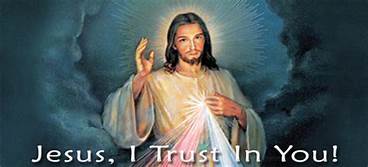"Blessed are those who have not seen and have believed" (Jn 20:29). It has been a week since we celebrated the resurrection of Jesus with joy. In this Sunday's mass Gospel reading from John 20, we read that it is now a week after the first appearance of Jesus to his disciples, and he appears to them again in his gloried and mystical bodies. This time, Thomas, absent at the first appearance, is present when Jesus made himself known to his disciples. The unbelieving, the doubtful Thomas, comes to faith in the resurrection of Jesus because he can see, touch and verify that Jesus is truly and materially alive after his crucifixion. He now has evidence of the resurrection because he can see and come to believe. The text of this Sunday's gospel and other readings for the liturgy of the word brings to our attention the negotiation of belief and doubt. In Acts 4: 32-35, the community of believers, similar to ours here, is addressed and called to unity. In 1 Jn 5:1, from our second reading, John speaks to "everyone who believes that Jesus is Christ is begotten of the Father." These scripture texts invite us to examine our faith or trust in the Risen Christ. Do we have absolute belief or trust in Jesus? What is the place of doubt in our journey of faith?
One of the biggest challenges to our faith in Jesus or his teachings is our occasional doubt, especially when we do not see our faith's physical or material results. We see or know about this doubt in Thomas. One of the twelve, Thomas, was absent at the first appearance of the Risen Christ to the group. Being unable to verify the reality of Jesus' resurrection personally, he doubted the report of other disciples that Jesus was alive. Thomas needed evidence; he wanted a physical verification to see with his own eyes what others said they saw. Thomas is all of us, in some regards. We, too, though we are people of faith and profess our faith in words and action, there are times when doubt seeps in and creates cracks in our faith. Wavering in faith usually happens at the moment of trial and suffering. As Jesus feels in the moment of his pain in the passion narratives we read during Holy Week, we cry to God in similar words, "My God, why have you forsaken me." Doubt in the presence of God during our illness, failures, and tragedies is not unusual. Even in the lives of saints we all love and seek to emulate, they contended with the darkness of doubt on their journey to sainthood. Saints like Therese of Lisieux and Mother Teresa reportedly have had to contend with feelings of isolation, loneliness, or the absence of God. To be candid, we must admit that our faith journey consists of moments of faith and doubt, like Thomas.
How do we deal with these moments of uncertainty, darkness, hopelessness, and doubt about the presence of God in our lives when they arise? Doubts and faith are, after all, not strange bedfellows. We may have to admit that doubts will occasionally assail our faith, but be encouraged that these doubts will ultimately arouse the gift of filial trust in us. We must continually strengthen and deepen our love for Jesus in the power of the Holy Spirit; this is how to sustain our faith through episodes of doubt. We need the enrichment of the Holy Spirit to inspire enduring faith, belief, or trust in the power of the Risen Christ. We must constantly renew our minds by studying and reflecting on the Word of God, and we must visit the Blessed Sacrament frequently to gaze on Jesus and be filled or nourished by His living presence. When we do these spiritual exercises under the aegis of the Holy Spirit, we can address our unbelief and start believing, as Jesus said to Thomas. Hopefully, we, too, can repeat Thomas's words with deep faith: "My Lord and God!" My Lord and God, I trust in you!
The solemnity of the Annunciation of the Lord is usually celebrated on March 25. However, because it fell on Monday of Holy Week this year, the Church authority moved it to Monday, April 8. I encourage you all to make plans to attend mass on this significant feast day tomorrow.
I wish you all a happy Sunday of Divine Mercy.
In the Risen Christ,

 RSS Feed
RSS Feed